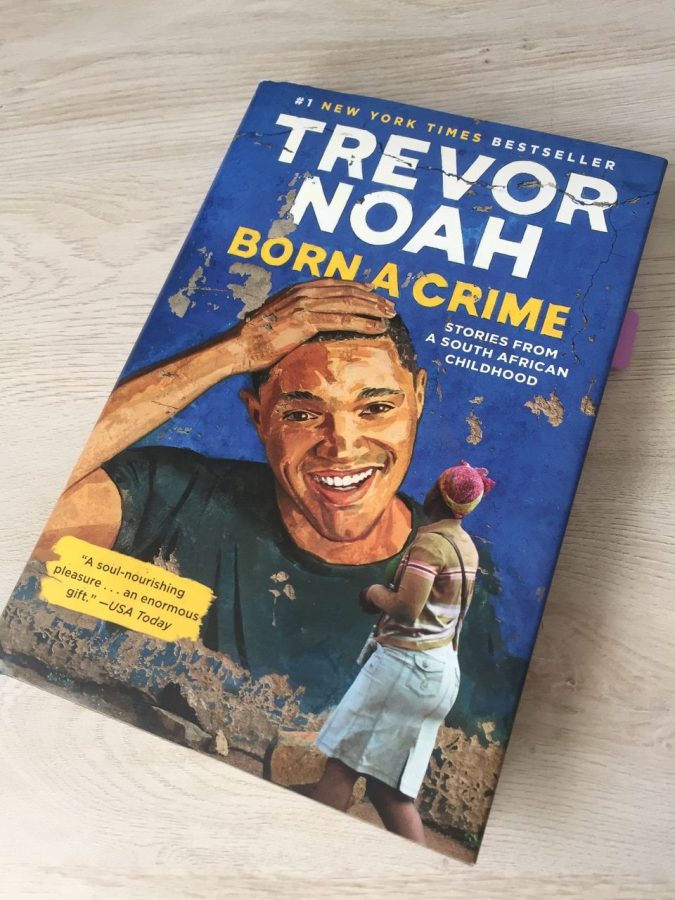Trevor Noah’s debut novel continues to be relevant in 2020
From the moment he took his first breath, Trevor Noah was a criminal.
Had I not enrolled in a CCP English course at Kent State, I would have never known this.
One of my assignments in the first month of the course was to read “Born a Crime” by beloved stand-up comedian and Daily Show host, Trevor Noah. I wasn’t too excited at first, given I had already been assigned an essay and another book to read (one much less interesting). My tone changed around 20 pages in, when I realized that this book was actually very interesting, and I couldn’t seem to put it down.
I read over half the book in my first sitting, unable to drag my mind away from the stories of Noah. Through reading this, you get a sense of his personality, as it often reads like a stand-up comedy set. Noah has a knack for looking at a depressing or seemingly bland event, and putting his comedic twist on it.
Just wait until you read about the time his mother threw him out of a moving bus.
I know I’m late, seeing as the novel was published in 2016. However, it remains relevant, and chances are, you haven’t read it yet.
It’s no secret that Noah is probably doing well financially, but it hasn’t always been that way. In fact, he grew up in a one room home in South Africa. Noah lived with his mother and extended family, experiencing the struggles of poverty from early childhood through his teenage years.
I would have never guessed Noah had such a difficult life. I don’t watch The Daily Show, but I’m still familiar with Noah as he’s one of the most popular faces on screen these days. Would I have guessed he lived through Apartheid? Probably not. Most are unaware Apartheid even happened three decades ago.
If you’re unfamiliar, Apartheid, a series of racist segregation policies employed in South Africa, began in the late 1940s and ended in 1998. White power brokers kept the black citizens of South Africa in poverty, similar to the Jim Crow south of American history. Unfair rules centering around bus routes to home ownership and everything in between exacerbated the cycle of poverty.
Growing up as an individual of mixed race, Noah’s experience led him to be treated as someone who wasn’t quite white or black enough. No group treated him as one of them, all because of his skin color. Even his own family treated him differently, believing he was favored because he was part-white.
Apartheid divided the country, leading to the deaths of countless individuals. Violence ruled and police brutality followed. Noah grew up in fear, not only because of the rampant violence, but because he was not a legal citizen. That’s correct, he was literally born a crime – hence the name of the novel.
During Apartheid, mixed relationships were a major legal offense. His mother’s pregnancy, with a white man from Switzerland, was a problem, leading the two to keep their relationship (and pregnancy) under wraps.
“Born a Crime” features many important lessons, in particular, racism and its effect on individuals. Speaking from his own experience, Noah goes in depth on how these racist policies affected his childhood. Whether it be the countless days locked inside due to his family’s fears of him being spotted by police, or the harsh treatment he received from whites, Noah experienced his fair share of racial injustice.
Valuable lessons, though, remind readers of racism’s atrocities. Growing up with this in mind, Noah learned to look beyond skin color, and made strides to build togetherness. More often than not, any hostility directed his way would evaporate.
What’s this have to do with anything going on today? If you’ve watched the news recently, it’s obvious racial tensions are high in America. Reading “Born a Crime” puts everything into perspective, and reminds us racism impacts all nations.
Reading “Born a Crime” won’t solve everything, but it will teach that we are more alike than different. Maybe that will be a start.

